Jailed Journalist Sentenced To Further Four Years For Social Media Activity
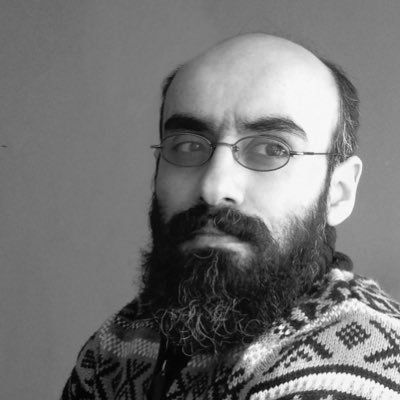
Iranian journalist and activist Hossein Razzagh, imprisoned in Tehran's notorious Evin prison, has had his sentence extended by four years.

Iranian journalist and activist Hossein Razzagh, imprisoned in Tehran's notorious Evin prison, has had his sentence extended by four years.
Razzagh’s twitter account published an update on Thursday that Branch 26 of the Revolutionary court has issued a new sentence on charges of “conspiring and colluding with the intention of disrupting the security" of the country and "propaganda against the system.”
The charge of disrupting security was because of Razzagh’s managing a popular room on the social audio app clubhouse, and the charge of propaganda against the regime is for his open support for the Baha’i community, one of the most persecuted religious minorities in Iran.
The brave political activist was arrested by security forces in the northern Iranian city of Amol on August 21, less than a year after his release on $67,000 bail (20 billion Iranian Rials at the time) for his previous criticism of the regime.
Another charge against him was “publishing lies with the intention of disturbing the public mind," which he is accused of for tweets defending Sepideh Rashno, a woman who was arrested for protesting mandatory hijab rules before the death in custody of Mahsa Amini.
Razzagh, who has been detained many times in recent years, was one of the founders of a virtual chatroom in the clubhouse called "Freedom Square," where participants were critical of the regime. He claims he was forced to remove the room from the platform under pressure and threats by the Intelligence Ministry.
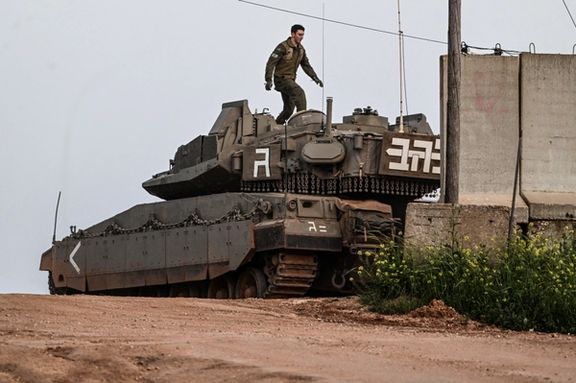
Iran International sources have provided further information about the newly intensified Israeli attacks on the targets affiliated with the Islamic Republic in Syria.
According to the sources, the attacks on March 30 and 31 hit intelligence centers operated by Iran and Lebanese militant outfit Hezbollah in cooperation with the Syrian government forces in the al-Mazzah municipal district in the capital Damascus and the attack on April 4 targeted Al-Qusayr airport near the Lebanese border.
Vowing revenge, the Islamic Republic has admitted that two IRGC “military advisors” -- namely Meqdad Meqdani (Meghdad Meghdani) and Milad Haydari – were killed in the late March attacks. According to the sources, the attacks seemed to be Israel's response to a foiled terrorist attack a week ago in the Megiddo area inside Israel by a person who, according to Israel, was sent by Lebanon's Hezbollah.
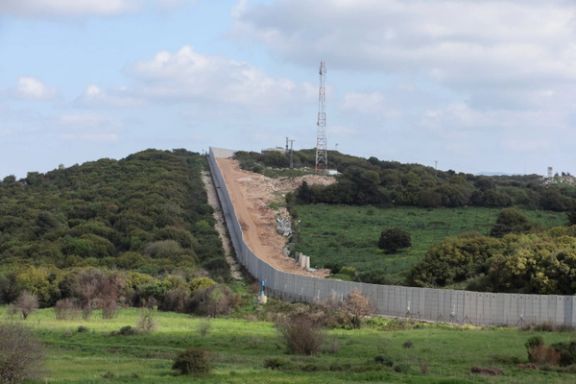
The sources added that both Meqdani and Haydari were IRGC intelligence officers in Syria, noting that a group of senior members of the IRGC Intelligence Organization, including former head of the body Hossein Taeb, visited the bereaved families of the two “martyrs” in the past few days.
Iran usually does not report the extent of its casualties in Syria and some observers say that acknowledging the deaths of two IRGC personnel can mean that Tehran wanted to lay the ground for retaliation. Iran International sources are of the opinion that the IRGC forces are planning an imminent attack inside Israel with the help of Hezbollah forces.
On Thursday, dozens of rockets were fired into Israeli territory from Hezbollah-controlled southern Lebanon, where several displacement camps hosting Palestinian refugees and armed factions are located.
According to Israeli-based news channel i24NEWS, Hezbollah has told Lebanese media that Palestinian groups were behind the rocket attacks.
Three security sources also told Reuters that Palestinian factions based in Lebanon were behind the rocket attacks on Thursday afternoon across the disputed border into Israel.
The Israeli military is still assessing the situation following Thursday's rocket strikes from Lebanon but is working on the assumption that Palestinian factions were behind the attacks, a defense official said. The Israeli military said 34 rockets were launched from Lebanon on Thursday, of which 25 were intercepted by its Iron Dome anti-missile system.
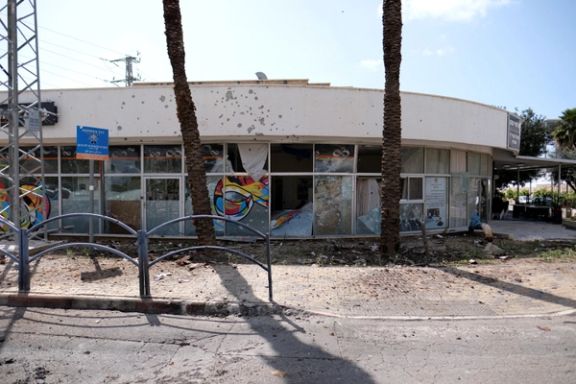
In response to the volley of rockets fired from Lebanon, Israeli Prime Minister Benjamin Netanyahu promised to hit back hard, saying "As for the aggression aimed at us from other fronts - we will hit our enemies and they will pay a price for every act of aggression." Hours after his threat, powerful Israeli airstrikes rocked Gaza strip after midnight on Friday.
Iran has considerable drone capabilities that it has used against US bases in Syria as recently as last month, killing a US contractor and injuring at least eight US servicemen.
Tensions rose in Syria when on March 23 Iranian backed forces attacked a US base with a drone, inflicting casualties. The US responded with an air strike, which was followed by more attacks on US forces. The tit-for-tat strikes stopped after two days, but Iran has targeted US forces in Iraq and Syria 80 times since early 2021 when the Biden administration assumed office.
Israel has been regularly attacking targets in Syria since 2017 to weaken Iran's attempts to strengthen its military presence in the war-torn country and build up a threat on Israel's northern borders.

As tension mounts between Iran and Azerbaijan, Baku says it has arrested six Iran-funded agents accused of a coup plot.
According to the Interior Ministry, State Security Service and Prosecutor General's Office of Azerbaijan, the group is charged with trying to overthrow the government.
They claim the members of the group were recruited by Iranian special services. According to local media, the detainees, calling themselves “believers”, carried out pro-regime propaganda and religious radicalism through social networks.
The latest news reflects growing tensions between Baku and Tehran. Earlier in the week, Baku announced it had arrested four people in connection with the attempted assassination of a lawmaker who was shot and wounded last week.
Fazil Mustafa, a lawmaker who had been strongly critical of Azerbaijan's neighbor Iran, has been recovering in hospital after what the state security service described as a terror attack.
Relations between Azerbaijan and Iran, which has a large population of ethnic Azeris in its northwest, have been strained in recent months after Baku announced plans to open an embassy in Israel. Though Israel has had an embassy in Baku since the 1990s, it was a show of deepening ties for Baku to open an embassy in the Jewish state.
Iranian officials have accused Azerbaijan of allowing Israel to set up intelligence and military bases on its territory as an operational base against Iran, a claim Baku denies.
Meanwhile, in January, Azerbaijan closed its embassy in Tehran after what it called a "terrorist attack" that killed the embassy's head of security.
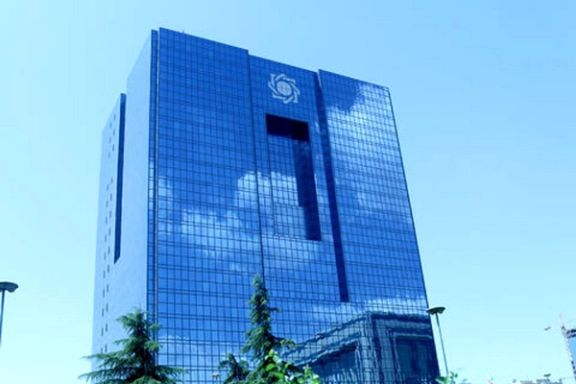
Chaos has ensued in Iran’s financial and currency markets as the government tries to restrict the sale of cash US dollars.
The Central Bank of Iran (CBI) issued a new directive in March to stop cash dollar sales by forex dealers and instead required people to open dollar accounts to deposit their foreign currencies.
Buying dollars had become a critical means of Iranians securing what money they have amidst biting sanctions and a plummeting local currency.
With annual inflation running at more than 50%, Iranians have been trying to protect the value of their savings by buying foreign currency or gold.
Moneychangers told Iran International that after the announcement, cash dollars have become scarce and banks are creating obstacles for people in opening foreign currency accounts.
Last month, the Central Bank said selected banks could sell foreign currency up to €5,000 to each Iranian annually at rates announced on the Iran Central Exchange (ICE) website, but it later lowered the cap from €5,000 to €2,000 as many in the market were reselling to earn extra money.
In February, as the Iranian currency began to fall to new lows, officials announcing that citizens will not be allowed to buy their annual share of foreign currency from official exchange bureaus. They also said that the government will stop providing dollars to banks and official dealers for that purpose.
Amidst the government’s failed attempts to control the exchange market, the rial was trading above 500,000 to the US dollar, and 550,000 to the euro on Thursday. One year ago the dollar traded at around 250,000 rials.
Ordinary people and businesses see the move as yet another dubious government scheme, typical of the state-controlled economy.
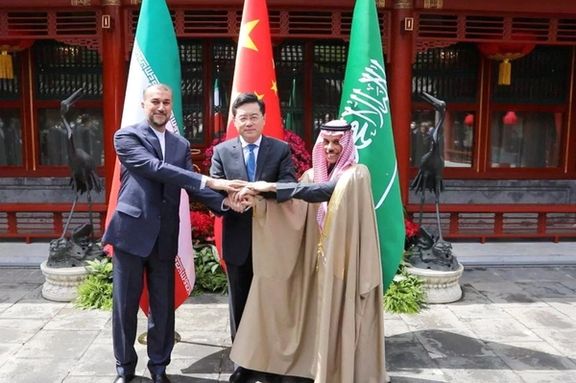
The foreign ministers of Iran and Saudi Arabia met in Beijing for the first formal meeting in more than seven years, after a China-brokered deal to restore ties.
Iran’s official news agency IRNA reported that a meeting of the two delegations took place and they issued a joint statement “on expanding relations and cooperation.”
Tasnim news agency affiliated with the Iran’s Revolutionary Guard reported that Foreign Minister Hossein Amir-Abdollahian and his Saudi counterpart Prince Faisal bin Farhan Al Saud discussed practical measures related to the re-opening of their embassies and consulates. They also exchanged views, Tasnim said, on “certain issues related to their bilateral relations,” without providing details.
Reuters reported that the two countries agreed to resume flights and bilateral visits of official and private sector delegations, in addition to facilitating visas for citizens, the statement said.
After years of hostility that fueled conflicts across the Middle East, Tehran and Riyadh agreed to end their diplomatic rift and re-open embassies in a major deal facilitated by China last month.
In brief footage broadcast on Iranian state TV on Thursday, bin Farhan and Amir-Abdollahian, greet each other before sitting down side by side.
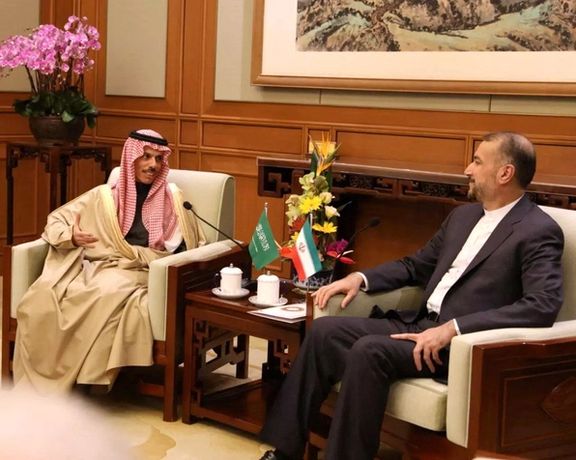
In March, China's President Xi Jinping helped broker a surprise deal between regional rivals Tehran and Riyadh to end a seven-year rift and restore diplomatic ties - a display of China's growing influence in the region.
In March, Xi spoke by phone with Saudi Crown Prince Mohammed bin Salman Al Saud about several issues.
Beijing's role in the breakthrough between Tehran and Riyadh shook up dynamics in the Middle East, where the United States was for decades the main mediator.
Iran’s regime that is shunned by the West and isolated politically and under US sanctions has heralded the revival of ties with Riyadh as a significant victory and a defeat for the United States in the region.
Critics in the US have blamed the Biden Administration for pushing Saudi Arabia toward China and restoring relations with Iran, by pursuing the restoration of the 2015 nuclear deal with Tehran and losing the trust of Saudi leaders as the great power in the region.
Saudi Arabia cut ties with Iran in 2016 after its embassy in Tehran was stormed by mob of hardliners supporters of the regime during a dispute between the two countries over Riyadh's execution of a Shi'ite Muslim cleric.
The kingdom then asked Iranian diplomats to leave within 48 hours while it evacuated its embassy staff from Tehran.
The relationship began worsening a year earlier, after Saudi Arabia and the United Arab Emirates intervened in the Yemen war, where the Iran-aligned Houthi movement ousted a Saudi-backed government and took over the capital, Sanaa.
For Saudi Arabia, the deal could mean improved security. The kingdom has blamed Iran for arming the Houthis, who carried out missile and drone attacks on its cities and oil facilities.
In 2019, Riyadh blamed a massive attack on Aramco oil facilities, which knocked out half of its oil output, directly on the Islamic Republic. Tehran denied those allegations.
With reporting by Reuters
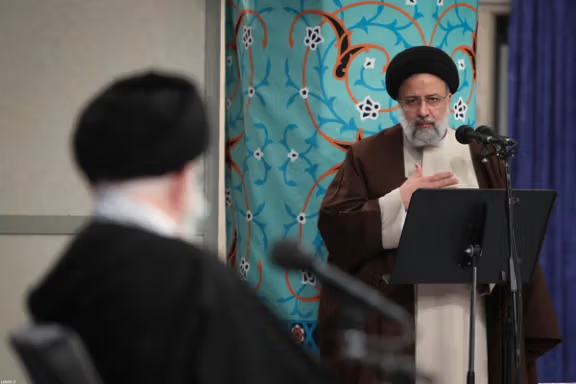
Supreme Leader Ali Khamenei’s assertion Tuesday that flouting hijab is “religiously and politically haram” has prompted officials to signal stricter measures.
At a meeting with state officials Tuesday, Khamenei claimed that foreign intelligence services were encouraging Iranian women to disobey mandatory hijab. He also claimed that “the enemy” is working according to “a plan and plot” and urged authorities to have their own plan for dealing with the issue of hijablessness.
“Discarding hijab is haram based on Sharia and also politically,” he declared. His declaration was a clear signal to authorities that they need to do anything it takes to re-establish control over women which had somehow waned following anti-regime protests.
“The order given by his excellency is clear,” Parliament Speaker Mohammad-Bagher Ghalibaf said Wednesday while promising to give precedence to any hijab-related motion or bill.
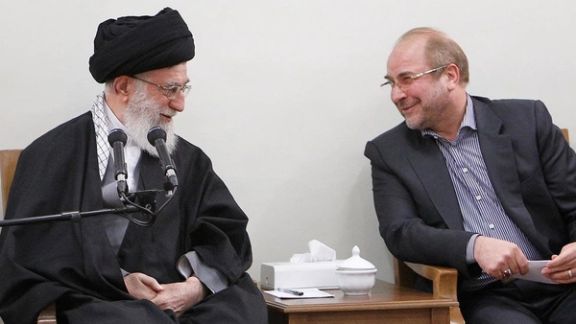
Following Khamenei’s cue, the ministry of interior in its second statement on hijab within a week, alleged that the opposition to compulsory hijab was an enemy plot advanced by foreign intelligence services and the opposition outside Iran, who through social media are trying to use it to “create deep social divides and a divide between the people and the government.”
Airport staff refusing to offer services to ‘hijabless’ women in Shiraz
Claiming that the ministry is responsible for ascertaining and defending “rights of the majority of the people,” the statement said it will fully support the activities of vigilantes who have been harassing women to follow the Islamic dress code.
The ministry also said the judiciary and other organizations involved in the enforcement of compulsory hijab will take action “against the few who act against the society’s norms” to defend the “dignity and identity of the Muslim Iranian women.”
Mahsa Amini’s death in ‘hijab police’ custody in September sparked the protests That engulfed the country nearly non-stop for four months. Many women burned their headscarves during the protests, vowing never to surrender to compulsory hijab again.
‘Hijabless’ women are now seen everywhere, even in some of the most conservative cities. For many, this is a form of civil disobedience. Some social media users have said that in some public venues such as restaurants, ‘hijabless’ women outnumber those who wear headscarves.
On Wednesday, an official of Tehran’s Metro Organization, Masoud Dorosti, said his organization has set up a “chastity and hijab taskforce” for enforcement on public transport. According to Dorosti, the first phase of the plan, giving verbal warnings to women who do not abide by the hijab requirement, has begun at metro stations. Tehran municipality has adopted similar plans.
The police and the judiciary have also resorted to pressuring businesses to enforce the hijab on their premises.
Authorities have shut down hundreds of shops, restaurants, cafes, and ecotourism facilities during the two-week New Year (Nowrouz) holidays across the country.
Earlier this week, the ministry of higher education said institutions under its coverage will no longer offer educational and other services to students who do not abide by hijab rules.
The Islamic Azad University, which is not administered by the ministry, has also announced strict measures against defiance of the compulsory hijab. The university which has over 1.1 million students across Iran has ordered its faculty to “seriously manage” abidance of the hijab rules by their students and threatened them with repercussions if students flout hijab in their classes.
“Conflict between professors and students? We are teachers not police or sheriffs. It is knowledge that will eventually be harmed by destroying teachers’ relationship [with students],” a professor of criminal law at Tehran university, who was recently sacked for criticizing the regime after the execution of four young protesters, said in a tweet Tuesday.